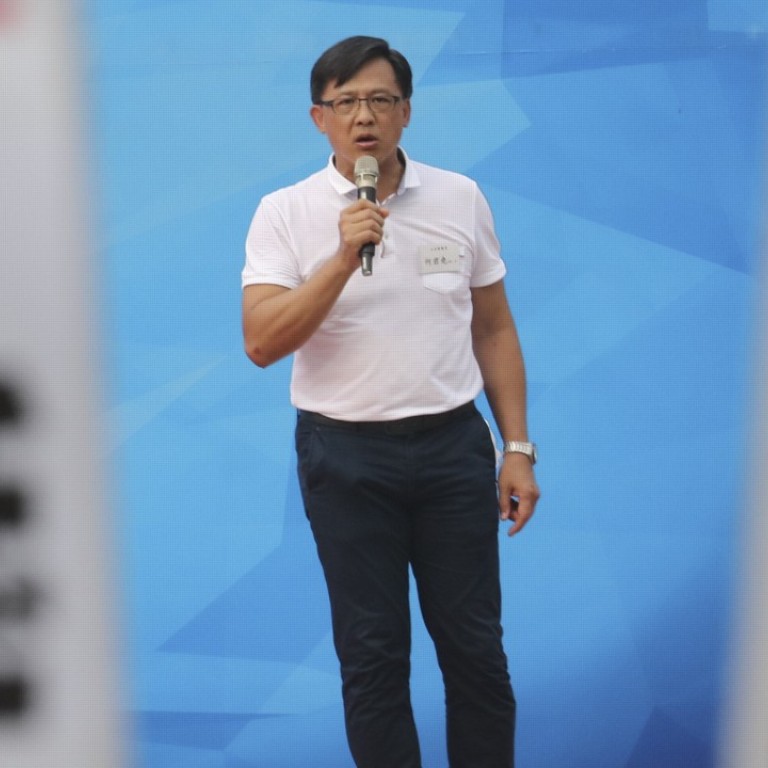
Hong Kong lawmaker Junius Ho should have known better with ‘kill’ remarks
Comments by former president of the Law Society regarding Occupy co-founder cross the line when it comes to freedom of expression and he must apologise
It has to be said this would be equally true of reported sequential social media postings expressing the hope Ho and his family would die, which prompted pro-Beijing supporters to complain to police about cyberbullying.
Police are investigating comments at a rally Ho helped organise, which called for academic Benny Tai Yiu-ting to be sacked from the University of Hong Kong for his role as a co-founder of Occupy Central. Elaborating on his remarks in a Facebook post, Ho argued that the Chinese character “kill” used by him and rally participants was, in fact, its homonym for “halt”, as in the need to halt the lawbreaking expressions of independence advocates. Separately, he explained that “to kill without mercy means we deplore wrongdoers like our enemies”. It would have made more sense, and perhaps helped restored civil debate, if Ho had simply expressed sorrow for something said in the heat of the moment. Indeed, if arguments for and against independence were debated reasonably, it would quickly become clear it is neither feasible nor in the city’s best interests.
Freedom of expression may include the right to shock or offend. But there is a line to be drawn and where speech is used to incite violence, it has clearly been crossed. Saying that people should be killed, whether you mean it or not, is inflammatory and reckless.
The question of any legal consequences is ultimately up to the Department of Justice. Morally and politically speaking such remarks are counterproductive and set a bad example. Whether they amount to hate speech may be open to debate, given that this usually refers to the targeting of groups defined by ethnicity, race or religion. This also raises the question of the alleged use of “Shi-na man”, the derogatory term for Chinese people, by Ernie Chow Shue-fung, former CUHK student union president, in a confrontation on campus with mainland students.
Whatever the legal outcome, there is still room for an apology and retraction from Ho, a former president of the Law Society who should have known better.

